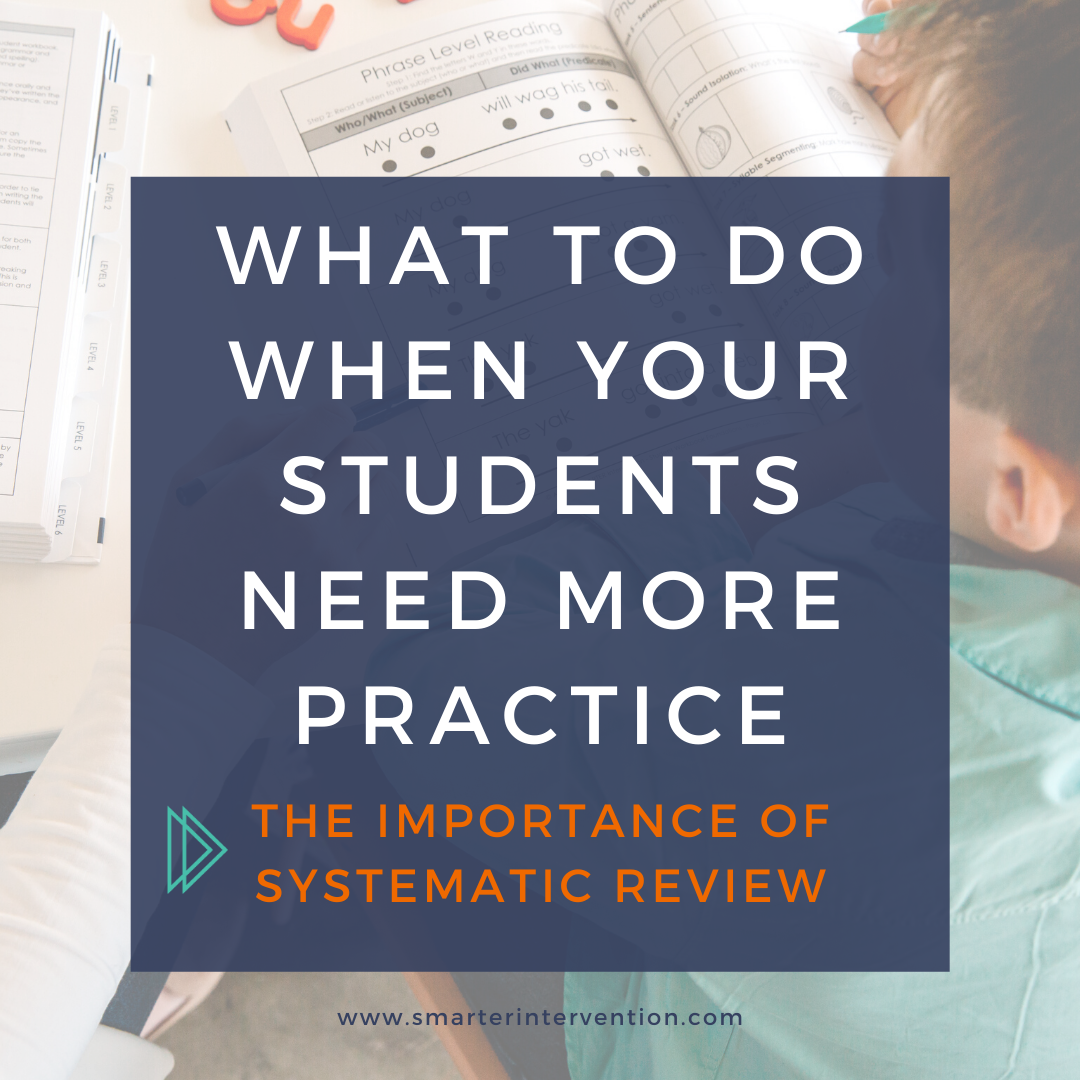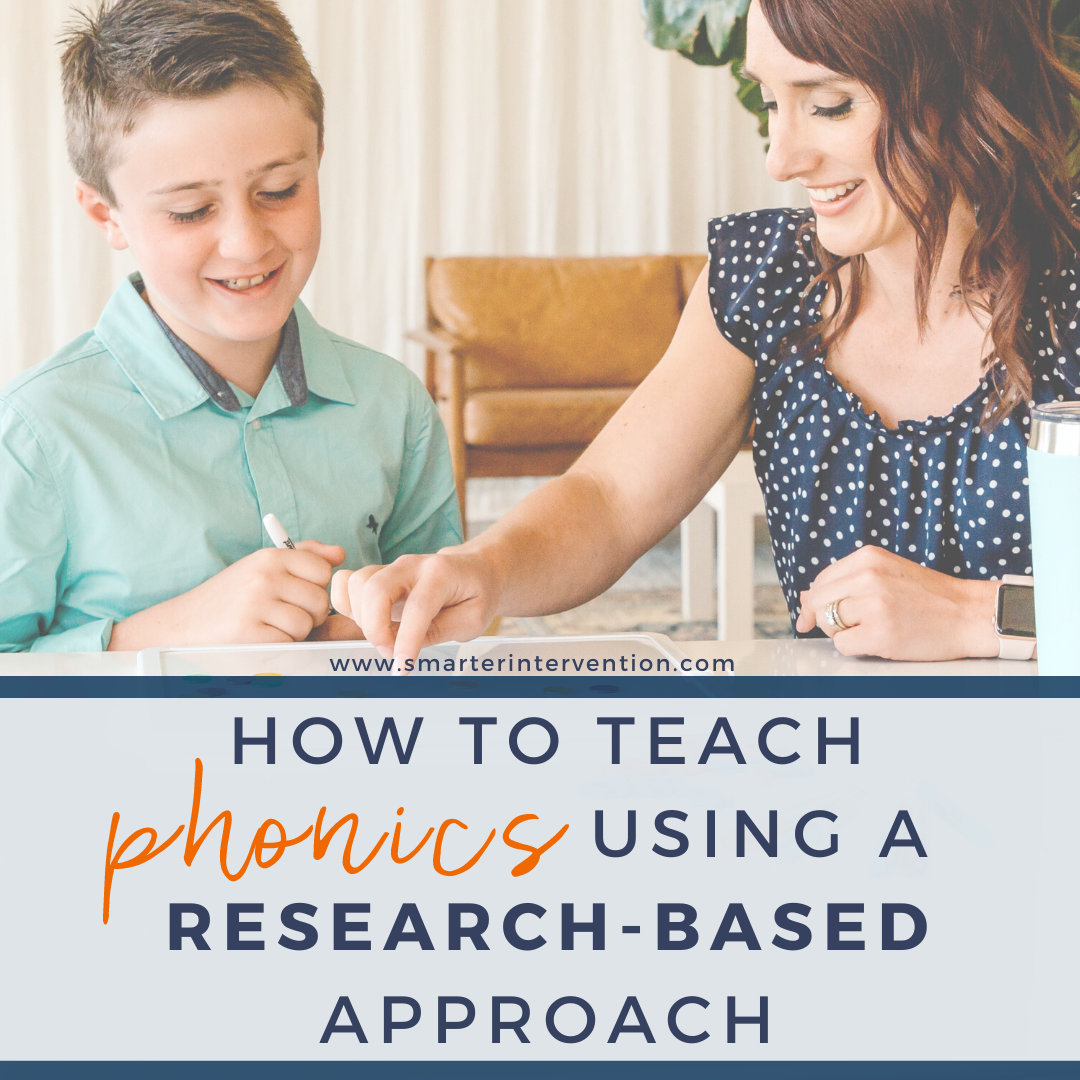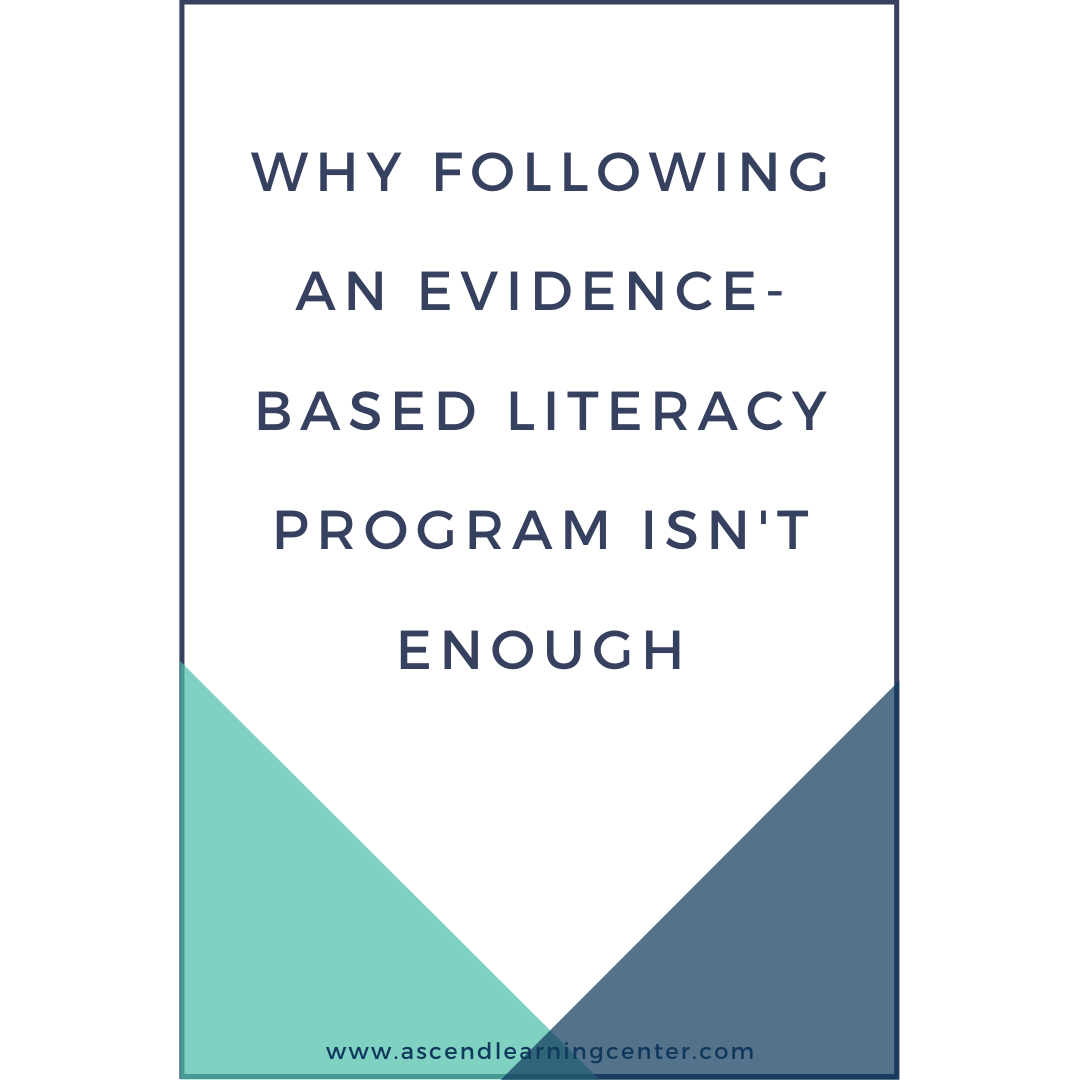Science-based literacy resources and articles
for families, educators and schools
Search by Category:
Categories
- Advocacy
- Authentic Literature
- Business
- Comprehension
- Data Tracking
- Differentiation
- Dyslexia
- Evaluation and Assessment
- Executive Functioning
- Games & Activities
- Helping My Child At Home
- How To
- IEP/504 Plan
- Lesson Planning
- Math
- Online Intervention
- Organization
- Parents
- Phonics
- Phonological Awareness
- Reading Comprehension
- Reading Fluency
- Research
- SLP
- Spelling
- Vocabulary
- Writing
How to Systematically Review Previously Learned Material
As students progress through reading instruction and learn harder skills, it is imperative that we review previously learned concepts with them too. Without systematic review, we risk students losing previously mastered skills. Read on to see how we systematically review with our students - these strategies have made a huge difference for us!
How Do I Fit It All In? Organizing Your Literacy Block to Align with the Science of Reading
Following the Science of Reading requires many lesson components we should be including in our literacy instruction.
Between explicitly teaching the 5 Core Components of Literacy, targeting student needs, tracking data, and pulling review activities - it can definitely feel like a lot!
But here’s the thing, research-based instruction that aligns with the Science of Reading does not have to be hard. All you need is a clear framework you can use to plan your lessons in alignment with research-based principles so that you know you are covering everything you need without it feeling super overwhelming!
How to Use SOR to Build Students’ Comprehension Skills
In order to be a successful reader, students have to be able to understand what they are reading - not just sound out the words. Keep reading to learn how to use SOR to support students that struggle with comprehension.
How To Explicitly Teach Phonics Rules
It’s no secret that research tells us we need to teach rules explicitly - but what exactly does that mean?
Today, we are going to break down exactly what “teaching rules explicitly” means as well as walk you through how you can use this approach in your lessons!
What To Do When Your Students Need More Practice: The Importance of Systematic Review
Have you ever looked through your students’ lesson data and thought - “gosh, they just aren’t getting this?”
We’ve all been there. Today - we are going to break down what you can do when students need more practice and the importance of systematically reviewing previously learned concepts.
How To Fit Phonological Awareness into Your Reading & Writing Lessons
It is no secret that phonological awareness skills are a key component to reading and spelling, but for a long time it felt like the way to effectively fit these drills into our lessons WAS a secret! After a while of looking at the data (and some trial/error!), we found a way that worked for us and want to share it with you!
How to Teach Phonics using a Research-Based Approach
In the field of reading - phonics is a pretty common term. However, there is much more to phonics & teaching the skills it encompasses than you might think.
Today, we are going to break down what exactly phonics is, and how we ACTUALLY should be teaching these skills to our students. Here’s the thing - there’s a LOT of information out there and it can definitely feel overwhelming if you are trying to pull all of this together alone. The good news though? It doesn’t have to be hard! Our goal is to give you a clear framework you can use to implement research-based instruction!
Navigating Your Literacy Intervention
Last week, we talked about how literacy intervention is like driving a car. Today, we are talking about navigating your literacy intervention so that you can help students close the gap as QUICKLY as possible without burning yourself out.
The 3 Things Your Literacy Intervention Materials MUST Include
In this field, we are bombarded with theories, approaches, information and often, it can be difficult to know exactly what resources you need.
Whether you are looking for activities to supplement a program that your school has provided you with, or, you are looking for a comprehensive curriculum, there are a few things that you should always be looking for. Keep reading to learn more…
How to Convert PowerPoint to Google Slides
One of the most common questions we have been getting is how to open a PowerPoint in Google Slides. Many schools use Google platforms for their online classrooms, but not everyone is familiar with how to use Google with lessons that originate in a different format! We’ve broken it down to a few easy steps you can follow to open any of your lessons in Google Slides!
Why Following an Evidence-Based Literacy Program Isn't Enough
If you know us well by now, you know that we are huge proponents of evidence-based (research-based) literacy intervention. It is absolutely CRITICAL that we be following evidence-based practices especially to get our struggling readers to grade level.
But here’s the issue - and it’s a big issue because nobody is really talking about it.
It’s not enough alone.
Back to School: How to Prepare for In-Person or Virtual Reading Intervention This Year
It’s that time of year again - back to school. In the weeks that are usually filled with fresh school supplies, neatly organized classrooms/offices, excitement and butterflies, this year seems off. Whether you are returning to school in-person, students are returning in a hybrid-model, or you are seeing students completely virtually, for many, this back-to-school season has been nothing short of confusing and frustrating.
In order to hopefully make your transition into this school year a bit less overwhelming, we wanted to share 3 secrets that will help you be prepared for whatever this year throws your way.
How to Teach Writing Systematically
The problem for many of our students is that they don’t know how to format paragraphs or more complex written pieces effectively. So just like we do with all other aspects of literacy, we put together a framework for students to follow.
How to Teach Vocabulary Explicitly
Whenever we talk about literacy, we always come back to this literacy processing triangle. Now, many reading intervention programs do a nice job of connecting the bottom points of the triangle by working on the orthography to phonology connection. Much less frequently, we see the third point, semantics, tied into a program
How to Teach Phonological Awareness Systematically
We always knew of the importance of phonological awareness in developing literacy skills and we knew that under-developed phonological awareness skills are a critical factor in students with reading struggles such as dyslexia and are a common issue for students with speech-language disorders.
If you know us at all, you know that we always frame everything from the literacy processing triangle lens.
Answering your Questions!
We wanted to jump in this week because we just wrapped up our Thriving Not Just Surviving in Literacy Intervention training earlier this week and were BLOWN away by the response and the incredible interventionists, SLPs, ELA educators that joined us. There were SO MANY questions that we weren’t able to address them all in the time we had allotted for the LIVE training so we wanted to take this opportunity to answer the questions in more depth because we promised that we would following the online training!
Hopefully, some of these Q & As can help you too as we move into our next academic year!
The Thing You Have Been Told is the Best for Your Students is Actually Hurting Your Literacy Intervention!
As more and more barriers are put up in education, it makes it harder for our kids to get the help that they need. We want to encourage you to make reading intervention simple. If we overcomplicate things it is only making it harder for our students to access, for us to deliver, and for students to get what they need. It doesn’t have to be hard. Let it be easy! Click through to find out the ACTUAL approach that will make literacy intervention effective for your students and easier for you!
Systematic Review in Online Sessions
In online sessions, it is even more essential to review previously learned concepts in case any of the skills weren’t cemented completely. Week to week, we continue to track errors and look for error patterns. If specific skills need to be worked on, we note them and include them in upcoming lessons. One of our favorite ways to do this is playing games. Open to grab one of our free digital games!



















